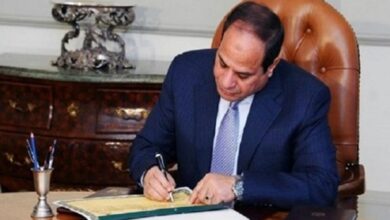Egypt’s Engineers Syndicate held its first election on Friday in 17 years, after judicial sequestration was lifted.
On 14 August, an Egyptian court ordered that the judicial protection of one of the largest professional syndicates in Egypt — which has some 475,000 members and 23 sub-syndicates — be lifted, and ordered the formation of an internal temporary committee to supervise the syndicate and its elections.
A chairman, governing board members, and sub-syndicates executives will be elected. Thirty-one candidates are running for president and 209 for board seats.
Competition was concentrated between the candidates of the Engineers against Guardianship faction, who seek the syndicate’s independence, and those of the Muslim Brotherhood, running on a list named the Coalition of Engineers for Egypt.
Since the early morning, syndicate members thronged to syndicate headquarters across Egypt. Several activists said such a high turnout was unexpected and attributed it to the fact that members have a feeling their vote will count this time. They also said their syndicate will not provide the services they want unless they interact with the electoral process and choose the best candidate.
However, voters said they are confused about the structure of the syndicate council, which is composed of 61 members. Even though several campaigns were launched before the election to raise the awareness of engineers, several of them complained about being unable to understand how to choose the candidates.
Saleh Fawzy, 64, an old syndicate activist, said this confusion is normal since it is the first election in nearly 20 years and most of the voters are young engineers who have never voted before.
Fawzy added that he and other old members of the syndicate are explaining the electoral system to the voters, while staying objective and avoiding bias in favor of certain candidates.
While several voters said they will not vote for the Muslim Brotherhood’s list in order to give an opportunity to fresh faces to lead the syndicate, others said the Brotherhood are more deserving since they have been the most active group in recent years.
Mohamed Hussein, 26, a member from Cairo, said, “Picking the Brotherhood is not a strange choice. They are the most effective bloc within the syndicate. Over recent years they have had a strong presence and they are famous for how they excel in syndicates.”
Hesham Sedawy, another member from Cairo, said, “We do not want a politicized syndicate. Engineers Against Sequestration seeks to achieve that. But if the Brotherhood wins, who will take the decisions? The Supreme Guidance bureau or the syndicate?”
The two lists' representatives stressed that their platforms are designed to improve engineers' living standards and regulate the relationship between engineers and their employers, which means not limiting the syndicate's activities as before.
However, some engineers believe that the platforms of both groups are almost identical and it is political affiliations that will determine voting.
The results of the vote are expected on Saturday afternoon or Sunday. News reports point out that the Brotherhood is leading, particularly in Damietta and Gharbiya.




